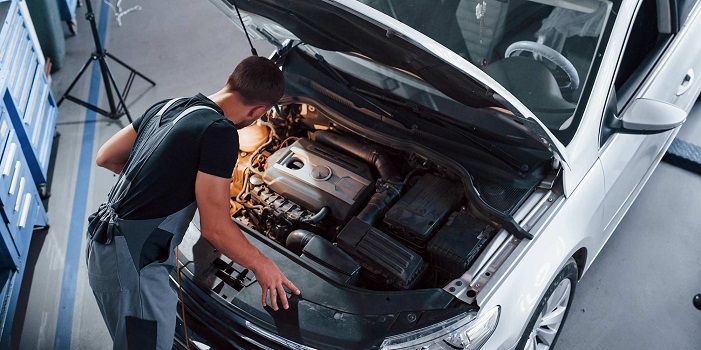
Table of Contents
Toggle1. Understanding Mechanic Liability: Are They Responsible?
In most cases, yes—a mechanic is typically responsible for fixing anything they break while working on your car. Mechanics are professionals trained to handle vehicles, and they should have the skills and tools needed to avoid damaging your car. However, accidents can happen, and most reputable mechanics will address the issue right away.
Mechanics are often covered by shop insurance or warranties for these exact situations. If they break something, they usually have an obligation to repair or replace it at no extra cost to you. But keep in mind that every situation is unique, so it’s important to understand how to approach the issue if it arises.
2. Common Scenarios When Mechanics May Break Something
Sometimes, parts in older or heavily used cars are fragile and prone to breaking. A mechanic might accidentally snap a piece during routine repairs, especially if parts are rusted or worn. Here are a few common scenarios where a mechanic might accidentally damage a component:
- Removing rusted or seized bolts that might snap due to age or wear.
- Disconnecting brittle plastic components that might crack during handling.
- Working in tight spaces, which can lead to accidental damage to nearby parts.
These situations are often unavoidable, especially with older cars, but experienced mechanics will typically be careful and discuss potential risks with you.
3. What Should You Do if Your Mechanic Breaks Something?
If you suspect that your mechanic has broken something on your car, don’t panic. Here’s how to handle it calmly and effectively:
- Ask for a Detailed Explanation: Politely ask the mechanic to explain what happened. Reputable mechanics should be transparent and willing to walk you through the issue.
- Request to See the Damaged Part: Ask to see the broken part if possible. This can help you better understand the situation and verify if it was truly an accident.
- Review Your Invoice Carefully: Make sure that you’re not being charged for any repairs related to the breakage. A trustworthy shop should not pass these costs onto you.
Being polite and calm during this conversation often leads to a better outcome. If the mechanic admits responsibility, they should offer to fix it at no additional cost.
4. Do Mechanics Have Insurance for These Situations?
Yes, most repair shops carry insurance to cover accidental damage to customers’ cars. This means that if a mechanic accidentally breaks something, their insurance should cover the repair costs rather than you having to pay out of pocket.
However, there can be exceptions. For example, if the damage happened due to a pre-existing condition of the part (like heavy rust), they may argue that the part was already compromised. In cases like this, mechanics may suggest that they aren’t liable, though a reputable shop will typically try to work with you for a fair solution.
5. Your Rights as a Customer
As a customer, you have rights when you take your car to a mechanic. Most states have consumer protection laws that hold repair shops accountable for damages they cause. Here are a few key points:
- Mechanics Must Perform Services Competently: This means that they should not damage your car while performing repairs. If they do, they are generally liable to fix it.
- Written Estimates Can Help Protect You: When getting work done, it’s always wise to ask for a written estimate. This can protect you from unexpected charges if something goes wrong.
- You Can File a Complaint if Needed: If a mechanic refuses to address damages they caused, you can file a complaint with your state’s consumer protection agency or the Better Business Bureau (BBB). This might encourage them to take responsibility.
6. How to Avoid Issues with Mechanic Damage
Preventing issues is always better than dealing with them after they happen. Here are a few tips to help you avoid any trouble when taking your car in for repairs:
- Choose a Reputable Mechanic: Look for shops with strong reviews, recommendations, and certifications. Reputable mechanics are more likely to take responsibility for any damage.
- Ask for a Walkthrough of Potential Risks: If you know your car has old or fragile parts, talk to the mechanic before they start. This can help them understand any potential risk areas.
- Request Documentation of All Work: Good mechanics will document the work they perform. This can help if there’s any dispute about what was or wasn’t broken during the repair.
7. When Should You Seek Legal Advice?
In rare cases, you may need to seek legal advice if a mechanic damages your car and refuses to fix it. Before going down this route, however, make sure you’ve taken all the steps above, such as requesting explanations, seeing the damage, and even filing complaints. Legal action can be costly and time-consuming, so it’s often a last resort.
Conclusion
In most cases, reputable mechanics want to maintain their good reputation and will repair any damage they cause while working on your car. However, as a customer, it’s essential to know your rights and how to handle situations where something goes wrong. By staying calm, asking questions, and understanding the mechanic’s responsibility, you can often resolve these situations fairly.
If you’re proactive and informed, you’ll be in a good position to handle any unexpected issues, making sure your car is in the best hands and ready for the road.





